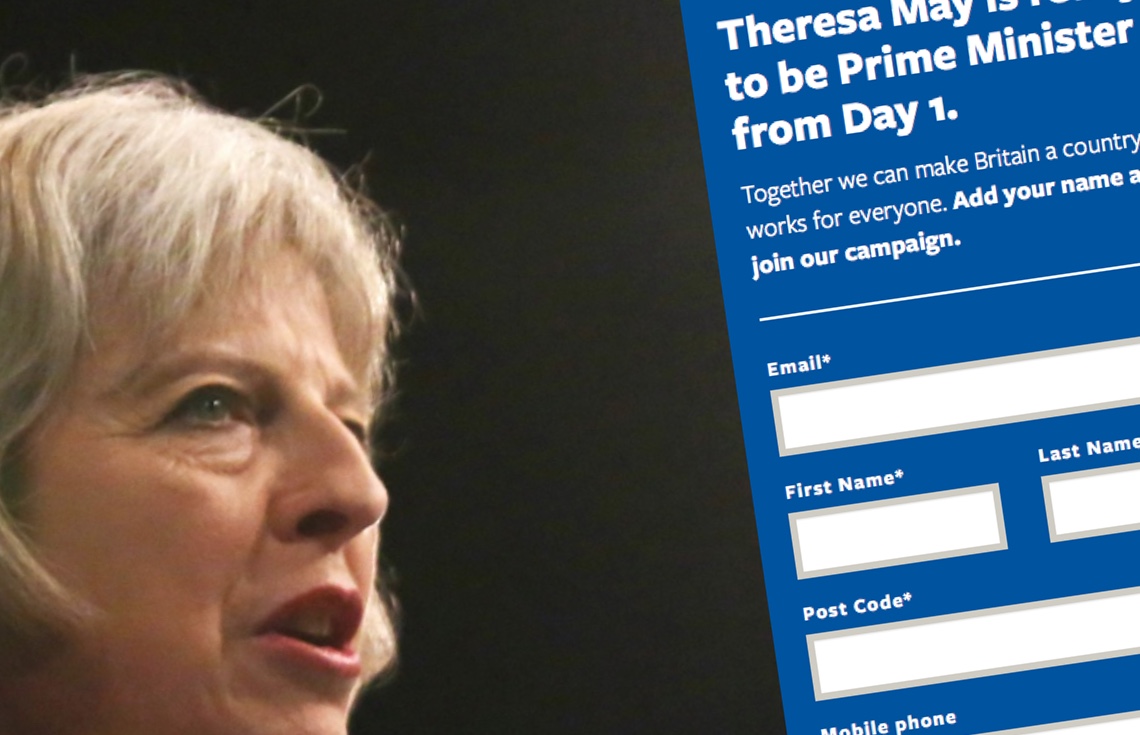Theresa May has launched her Conservative Party leadership campaign today. During the launch, she said she would not campaign to leave the European Convention on Human Rights.
Important: Theresa May ditches plan to pull UK out of ECHR – says it divides people & has no parliamentary majority
— James Landale (@BBCJLandale) June 30, 2016
This is important news. Theresa May has had a very shaky relationship with the European Convention on Human Rights (ECHR), and is the only likely contender for the Conservative leadership who has said clearly, in April 2016, that the UK must withdraw. Since the next leader of the Conservatives will automatically become Prime Minister with a governing majority, it is significant that she has said she will not attempt to pull the UK out of the ECHR.
The European Convention on Human Rights is a treaty which the UK entered into in 1953. It contains a list of basic rights (read them in plain-English here) which can be enforced by individuals against the state. To enforce their rights, people need to apply to the European Court of Human Rights in Strasbourg. If the court finds there has been a ‘violation’ of someone’s rights, it will say so. The terms of the treaty mean that the UK has agreed to ‘abide by’ judgments of the court. So if it doesn’t, it will be in breach of international law.
It is important to understand that the European Convention on Human Rights is not the same as the Human Rights Act. The Human Rights Act could be repealed without us pulling out of the ECHR, and vice-versa. You can find out more in our explainers on the Human Rights Act and ECHR.
Michael Gove, the other front-runner, has never said expressly that he would want to leave the ECHR. For more on where the expected leadership candidates stand, see Neil Crowther’s blog. However, as Neil also points out, this debate is fluid. We are yet to find out what the government plans for its long-promised and often-delayed ‘British bill of rights‘. It would be surprising if we see anything of those proposals at least until the next Prime Minister is in place.
The European Union dimension
On interesting tidbit from the announcement is that May justified her decision by saying that there would be no majority in Parliament for leaving the ECHR. But on one view, ECHR-withdrawal would only require the government to decide it was so, using its ‘royal prerogative’. There is a similar argument between lawyers at the moment over whether withdrawal from the EU (under ‘Article 50’) would need Parliamentary approval rather than just being a matter for the government. So, is Theresa May’s point a throwaway one, or would she also argue that withdrawal from the EU requires Parliamentary approval?
In the meantime, with the UK likely to leave the European Union, which could have a significant knock-on effect on our human rights laws. The Council of Europe, which administers the ECHR, may have an increasingly important role in our politics. And although no-one is talking about it now, it is inevitable that the ECHR and the Human Rights Act will be in play again once the debate turns to the details of an agreement to join the Common Market. If the EU does not offer a deal which would allow the UK to control free movement of people, it would not be surprising if ECHR withdrawal was mooted as a means of reducing immigration instead. These are interesting times.







